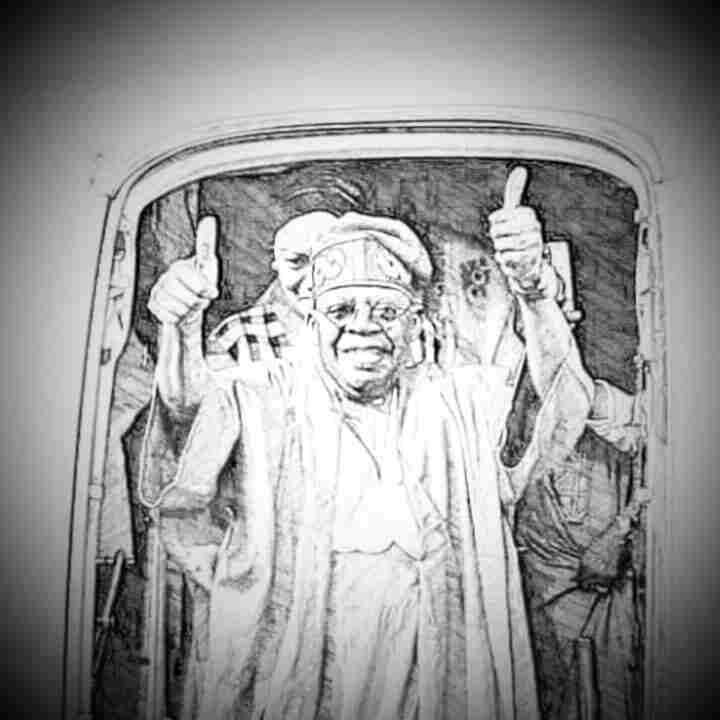When he was rounding off his presidency, Goodluck Jonathan claimed he would go down in history as the most verbally abused president Nigeria had ever seen. He was wrong. President Bola Ahmed Tinubu has surpassed him and all his predecessors in just one year because of his economic and monetary policies.
Tinubu’s economic policies, backed by the World Bank, have pushed millions of Nigerians to the brink, causing widespread pain and anguish.
Ironically, the global financial institution in its latest Nigeria Development Update report revealed that more than 129 million Nigerians now live below the national poverty line, representing a rise from 40.1% in 2018 to 56% in 2024.
The public’s only way to express their suffering is by dubbing him with the unsavory moniker, “T-Pain.”
The “T” represents the first letter of his name Tinubu. The “pain” symbolises his fire brigade and harrowing economic policies.
The Origin of “T-Pain” in Nigeria
At first glance, one might assume the reference is to the American rapper Faheem Rashad Najm, who rose to fame in the early 2000s under the stage name T-Pain, short for “Tallahassee Pain” — alluding to the struggles he faced growing up in Tallahassee, Florida.
But for Nigerians, “T-Pain” represents something far different. Following Tinubu’s now-infamous “subsidy is gone” declaration during his inaugural speech, which came without a solid plan to curb the galloping inflation that followed, Nigerians coined the term to capture the excruciating economic hardships they’ve endured under his leadership in the last 365 days.
The sharp decline in their purchasing power and their inability to meet basic needs made T-Pain an apt symbol of his policies.
The Beginning
Tinubu’s “subsidy is gone” declaration on May 29, 2023, caused petrol prices to skyrocket from N175 per liter to N650, and since then, the price has remained unstable, locations now determine the price, reaching N1,300 per litre at some filling stations across the country.
He compounded the situation by floating the Naira, stating that market forces should determine the exchange rate. This drove the rate from N455/USD to N1,600/USD on the official market (NAFEM), with the parallel market closing in on N1,700/USD as of October 17, 2024.
These two policies ignited a wildfire of inflation, driving up the cost of basic goods. A crate of eggs, which sold for N700 during Buhari’s administration (once considered the worst in recent memory), now costs over N5,000, and the Poultry Association warns it could rise to N10,000 if the government fails to act.
Similarly, a 50kg bag of rice, which cost N35,000 in May 2023, now sells for over N80,000. A pack of 20 spaghetti pieces that once cost N9,000 now goes for N20,000, depending on the brand, and 5 litres of groundnut oil that used to cost N4,500 now sells for N13,500. Household items are now out of reach for middle- and low-income earners.
While Tinubu is not solely to blame, his policies are the final straw. Nigeria’s woes stem from years of neglect, corruption-driven budgets padded by lawmakers, and poor leadership.
But Tinubu’s handling of the economy was the last blow. He put the cart before the horse, asking Nigerians to make sacrifices while the government’s lavish spending traumatizes the public.
Even as the country suffers, Tinubu purchased a new Airbus A330 presidential jet for $100 million (over N150 billion at the time), adding insult to injury.
Who First Called Tinubu “T-Pain”?
Peoples Gazette, Nigeria’s online investigative media, reported that the term “T-Pain” was first used to describe Tinubu’s government in April 2024.
However, it gained widespread traction on September 16, 2024, when Tinubu visited Maiduguri to console flood victims in the Northern state.
On October 10, 2024, Atiku Abubakar, Tinubu’s political rival in the 2023 election and former Vice President, criticized his mismanagement of the fuel subsidy removal.
In a tweet, Atiku lamented, “It is even more worrying that T-Pain is undisturbed by the hardship in the country.”
The following day, popular satirist and content creator Bello Galadanci, known as Dan Bello, uploaded a video titled “T-Pain Lalata” where he referred to Tinubu as T-Pain, saying, “I am wicked and I fit eat well while the children go to bed hungry. Petrol I dey go for 1 million/litre.” The moniker has since gone viral.
Is He the First Nigerian Leader to Be Nicknamed?
Nigerians have a long-standing tradition of giving their leaders nicknames based on their leadership style. Former military dictator Gen. Ibrahim Badamosi Babangida, who postponed the transition to democracy multiple times, earned the nickname “Maradona” – a dribbler – for his evasive maneuvers.
Goodluck Jonathan, plagued by insecurity during his tenure, was nicknamed “Badluck.” Buhari was called “Haribubu”
Tinubu, too, has earned his fair share of nicknames. From “Emilokan” — the political term he coined during the lead-up to the 2023 elections — to “Tulumbu,” and now “T-Pain.”
Will His Economic Policies Liberate Nigerians from Hardship?
When Gen. Babangida introduced the World Bank and IMF-backed Structural Adjustment Program (SAP) in 1986, his administration assured Nigerians that the hardship and foreign exchange market instability were only temporary.
Similarly, Tinubu’s economic team insists that the pain caused by his policies is temporary, but their actions suggest otherwise.
Hougaard and Carter’s The Mind of the Leader states that many leaders fail to meet employees’ basic human needs of finding purpose and happiness in the workplace.
The same can be said for Tinubu’s government. He appears out of touch with the people he leads — the Nigerian masses. Within just one year, Nigerians are struggling to afford even the most basic necessities. Happiness is now a luxury.
Meanwhile, the World Bank continues to commend him, urging him to sustain the economic policies, but Nigerians remain skeptical that these measures will improve their standard of living.
Join EdubaseNG WhatsApp Channel to get the latest education & student loan tips
Join our Telegram Channel to get the latest news about Student Loans & Education News.
Are you a stakeholder in education? You can become our guest writer. Write to us using our our email address here




